Spiritual Relationships
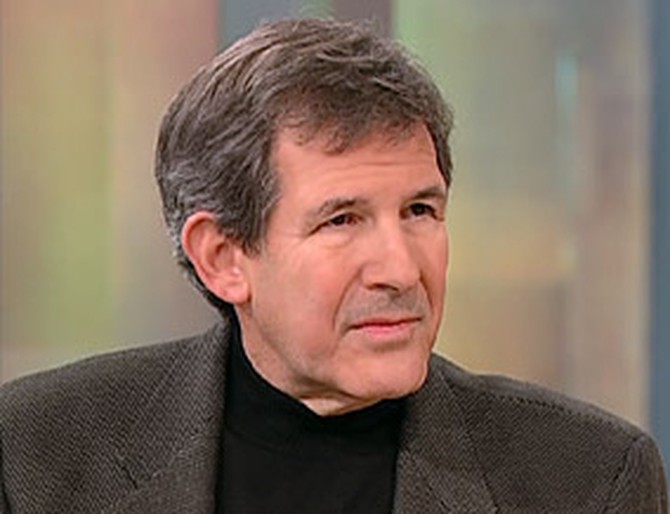
Gary Zukav is the author of Seat of the Soul—a book that Oprah says is one of her all-time favorites. In fact, she still keeps a copy of it by her bedside. Now he wants to help you transform your relationship from what he calls "an ancient archetype" of marriage into something more—a "spiritual partnership."
The traditional model of marriage, Gary says, is primarily about enhancing the survival of the participants. The couple work together toward common goals but keep emotional distance. "In a marriage, the partners often don't want to rock the boat. They want to keep things together," he says.
"The energy dynamic itself is very different in a traditional marriage than it is in a spiritual partnership," Gary says.
The spiritual partnership, Gary says, does not necessarily require religious belief, but does require people who work together for "something more."
"In practical terms, we're talking about getting to know yourself—getting to know what you're feeling, what you're thinking, what you're intending, what your fears are, and what your loves are," Gary says. "That is, what it means while you're walking on the earth."
The traditional model of marriage, Gary says, is primarily about enhancing the survival of the participants. The couple work together toward common goals but keep emotional distance. "In a marriage, the partners often don't want to rock the boat. They want to keep things together," he says.
"The energy dynamic itself is very different in a traditional marriage than it is in a spiritual partnership," Gary says.
The spiritual partnership, Gary says, does not necessarily require religious belief, but does require people who work together for "something more."
"In practical terms, we're talking about getting to know yourself—getting to know what you're feeling, what you're thinking, what you're intending, what your fears are, and what your loves are," Gary says. "That is, what it means while you're walking on the earth."
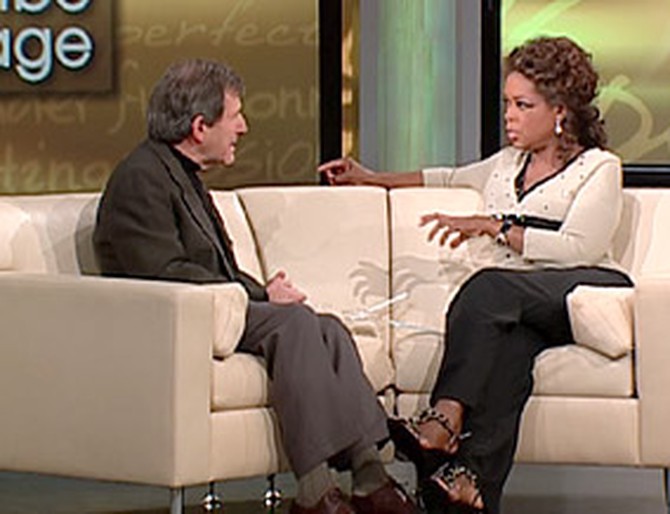
In a recent Oprah.com poll, 60 percent of respondents said they believe in the idea of each person having one soul mate who has the ability to "complete" you—like Tom Cruise's line from the movie Jerry Maguire. "That's a myth and if you think about it, you'll see it for yourself," Gary says. "Only you can complete yourself. No one can complete you for you."
Gary says that if your marriage is solely based on the "dynamic of romantic attachment"—that your partner has the exclusive ability to complete you—you will be disappointed when the "honeymoon phase" passes. "You begin to see, eventually, that all of your expectations that you put on someone else were unrealistic," he says.
A spiritual partnership, Gary says, strives for more than just marital vows to provide material comfort. "If you want to have the kind of relationship that your heart yearns for, you have to create it. You can't depend on somebody else creating it for you," Gary says.
Gary says that if your marriage is solely based on the "dynamic of romantic attachment"—that your partner has the exclusive ability to complete you—you will be disappointed when the "honeymoon phase" passes. "You begin to see, eventually, that all of your expectations that you put on someone else were unrealistic," he says.
A spiritual partnership, Gary says, strives for more than just marital vows to provide material comfort. "If you want to have the kind of relationship that your heart yearns for, you have to create it. You can't depend on somebody else creating it for you," Gary says.
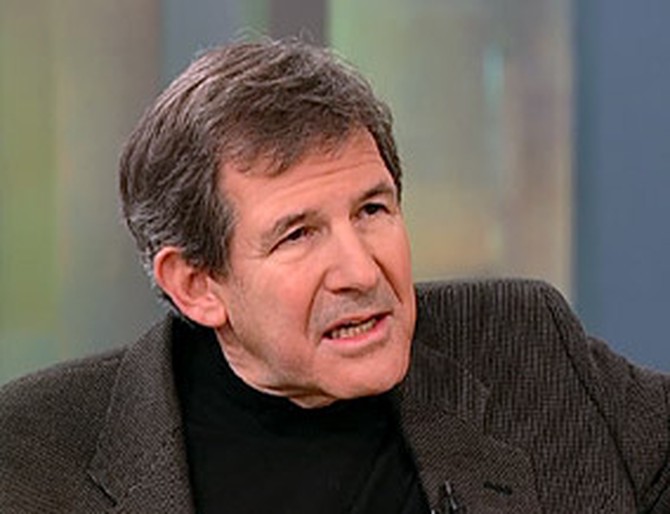
The key to understanding the current state of your relationship—whether it is or is not a spiritual partnership—is to look to your past. Gary suggests asking what your real intention was when you entered your relationship. "If what you're experiencing in the present is painful, you can look at what you did to create it," Gary says. "Once you make that connection, then you can begin to create differently by making different choices."
Gary says your intention is what makes all the difference in what your life will be like. "What gifts do you want to give to the world? What is your potential? Why are you on the Earth?" he says. "You have a reason—fulfill it."
Why should intention matter in your life? "Someone may want to make more money so they can buy a more impressive car so they can feel better about themselves. Or, we have a friend at home who works three jobs because his wife has a potentially life-threatening illness and he doesn't have health insurance. These are vastly different intentions," Gary says. "One is based in fear—the feeling of inadequacy and the need to impress others with a car, with a home. The other is based purely in love."
Gary says your intention is what makes all the difference in what your life will be like. "What gifts do you want to give to the world? What is your potential? Why are you on the Earth?" he says. "You have a reason—fulfill it."
Why should intention matter in your life? "Someone may want to make more money so they can buy a more impressive car so they can feel better about themselves. Or, we have a friend at home who works three jobs because his wife has a potentially life-threatening illness and he doesn't have health insurance. These are vastly different intentions," Gary says. "One is based in fear—the feeling of inadequacy and the need to impress others with a car, with a home. The other is based purely in love."
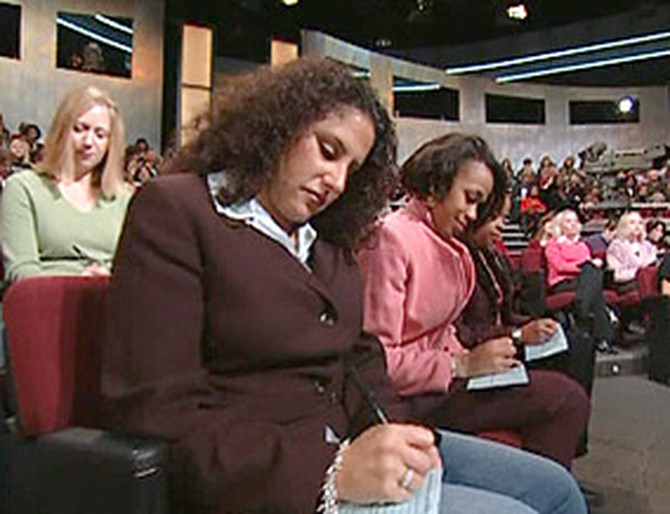
Are you in a spiritual partnership? The first step to finding out, Gary says, is to write down five words that describe your marriage. If you're not married, describe the relationship that you're in right now.
Be as honest as you can—don't write down words that describe what you wish it would be. Ask your partner to do the same thing. "It will start a very interesting conversation," Oprah says.
Be as honest as you can—don't write down words that describe what you wish it would be. Ask your partner to do the same thing. "It will start a very interesting conversation," Oprah says.

Sheila and Jim have been married for 15 years, but they say their constant fighting is driving them apart. When asked to describe their marriage in five words, both Jim and Sheila paint a bleak picture. Jim describes his relationship with the words "sucks, boring, on-edge, tiring and empty." While his wife sees their marriage as "sad, lonely, lacking, definitely on-edge and tiring."
Both Jim and Sheila—a self-described "screamer"—admit that they argue every day. There have been days when Jim has considered divorce, but he says he's determined to make his marriage work. "I would endure hell, torture, punishment...anything to hold our family together," he says.
Gary believes that there's still hope for Sheila and Jim. He asks the couple to call upon the love they have for each other and start infusing spiritual partnership into their marriage. "You have the opportunity to realize that you can use these painful interactions to grow...not to change each other," he says.
First, Sheila and Jim have to address what Gary says is the real root of their problems—fear. Anger typically hides pain, and in turn, pain hides fear, he explains. "Instead of looking at each other in the judgmental ways that you have been, understand that the person you're speaking with is frightened," Gary says. "The ultimate fear [is] that I'm intrinsically flawed."
Ultimately, Sheila says she wants her husband to make her feel like she's somebody, but Gary says that can't happen until Sheila believes it herself. "When you develop in you the strength and the clarity that lets you know that you are a soul on this earth with gifts to give, and that your painful experiences are self-created, you can begin to create differently," he says.
Both Jim and Sheila—a self-described "screamer"—admit that they argue every day. There have been days when Jim has considered divorce, but he says he's determined to make his marriage work. "I would endure hell, torture, punishment...anything to hold our family together," he says.
Gary believes that there's still hope for Sheila and Jim. He asks the couple to call upon the love they have for each other and start infusing spiritual partnership into their marriage. "You have the opportunity to realize that you can use these painful interactions to grow...not to change each other," he says.
First, Sheila and Jim have to address what Gary says is the real root of their problems—fear. Anger typically hides pain, and in turn, pain hides fear, he explains. "Instead of looking at each other in the judgmental ways that you have been, understand that the person you're speaking with is frightened," Gary says. "The ultimate fear [is] that I'm intrinsically flawed."
Ultimately, Sheila says she wants her husband to make her feel like she's somebody, but Gary says that can't happen until Sheila believes it herself. "When you develop in you the strength and the clarity that lets you know that you are a soul on this earth with gifts to give, and that your painful experiences are self-created, you can begin to create differently," he says.
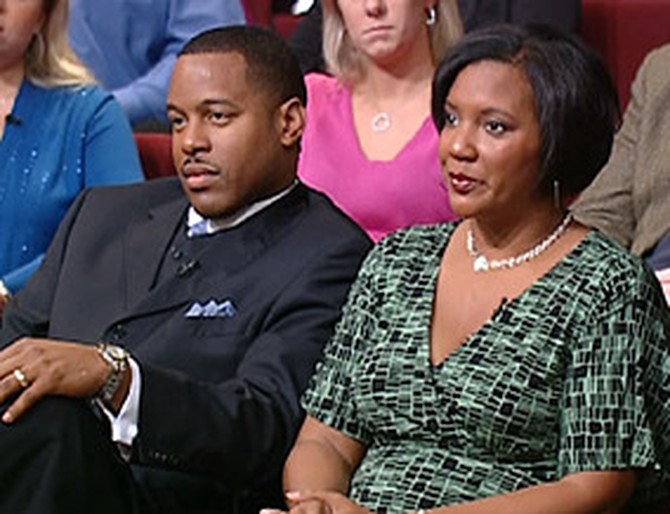
Members of Lisa and Alistair's community may think of them as the "it" couple, but behind closed doors, this couple says they are dealing with major communication issues. Lisa describes her marriage as "lifeless" and "resentful," while her husband of 12 years says their relationship is "boring" and "unfulfilling."
Lisa says a lot of their marital problems stem from not listening or understanding each other. "Sometimes we'll look at each other like we have two heads or something, like, 'Where are you coming from?'" she says. "I think I'm just asking for basic communication. We're definitely in a rut."
When Alistair disagrees with his wife, he says he voices his opinion once, but Lisa repeats her stance over and over. "I'm not one to argue," he says. "I think a lot of times she wants me to say, 'Okay, you're completely right,' and if I don't feel that way, I'll be, like, 'Whatever.'"
By walking away from unresolved arguments, Gary says Alistair has created a power struggle within his relationship. It's best to talk it out so that lingering feelings of animosity don't fester and cause future arguments. "If you walk away because there's nothing more you can contribute, your love is there and clear, you're not attached to the outcome," Gary says. "You can come back and try to extend yourself in love at another time."
Gary says couples must have good intentions if they want to achieve spiritual partnerships. "You can't be loving while you're judging," he says. "You can't be loving while you're criticizing. You can't be loving while you're blaming. ... In a spiritual partnership, your commitment is not to the relationship. Your commitment is to your own spiritual growth because [that's] how you can create the relationship that you want."
Lisa says a lot of their marital problems stem from not listening or understanding each other. "Sometimes we'll look at each other like we have two heads or something, like, 'Where are you coming from?'" she says. "I think I'm just asking for basic communication. We're definitely in a rut."
When Alistair disagrees with his wife, he says he voices his opinion once, but Lisa repeats her stance over and over. "I'm not one to argue," he says. "I think a lot of times she wants me to say, 'Okay, you're completely right,' and if I don't feel that way, I'll be, like, 'Whatever.'"
By walking away from unresolved arguments, Gary says Alistair has created a power struggle within his relationship. It's best to talk it out so that lingering feelings of animosity don't fester and cause future arguments. "If you walk away because there's nothing more you can contribute, your love is there and clear, you're not attached to the outcome," Gary says. "You can come back and try to extend yourself in love at another time."
Gary says couples must have good intentions if they want to achieve spiritual partnerships. "You can't be loving while you're judging," he says. "You can't be loving while you're criticizing. You can't be loving while you're blaming. ... In a spiritual partnership, your commitment is not to the relationship. Your commitment is to your own spiritual growth because [that's] how you can create the relationship that you want."
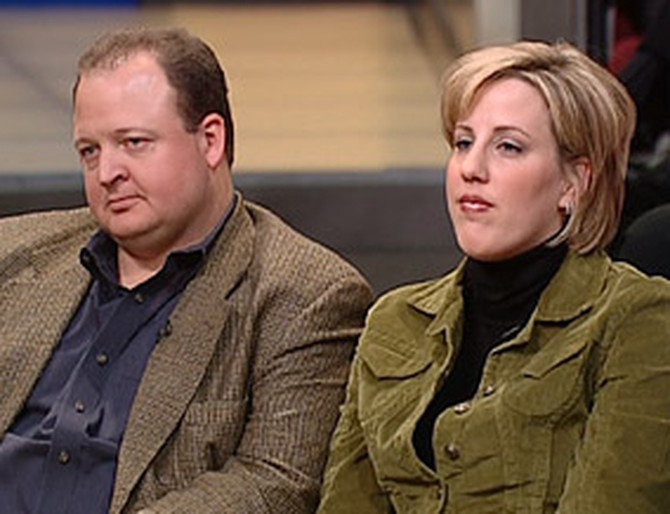
When Lisa and Chris met 10 years ago, Chris says his wife was fun and spontaneous. Now, he says her extreme Type A personality is starting to come between them. Though they both describe their marriage as stable, they also agree that it's stressful.
After Lisa gave birth to their two daughters, Chris says her perfectionism started causing problems. Lisa began to keep detailed spreadsheets and schedules, which track everything from what her daughters are eating to the family's budget. "I think it's unhealthy," Chris says. "It grinds on her. It makes her tired, irritable. It's not the person she is."
Gary says that Lisa's perfectionism is really a sign of something deeper. "Under anger is pain. Beneath the pain is fear—this basic fear of powerlessness," he says. "The same thing underlies any compulsive behavior, such as perfectionism."
How can Lisa discover what's causing her fear? The next time she feels the need to add something to a spreadsheet, Gary says she should stop and feel what she's feeling. "You'll feel a tremendous urge to get back and do it, but frustrate that need and feel the sensation," he says. "That will be a first step in moving towards your ability to be less controlled by this fear. ... That is spiritual growth. That's the development of self-mastery."
After Lisa gave birth to their two daughters, Chris says her perfectionism started causing problems. Lisa began to keep detailed spreadsheets and schedules, which track everything from what her daughters are eating to the family's budget. "I think it's unhealthy," Chris says. "It grinds on her. It makes her tired, irritable. It's not the person she is."
Gary says that Lisa's perfectionism is really a sign of something deeper. "Under anger is pain. Beneath the pain is fear—this basic fear of powerlessness," he says. "The same thing underlies any compulsive behavior, such as perfectionism."
How can Lisa discover what's causing her fear? The next time she feels the need to add something to a spreadsheet, Gary says she should stop and feel what she's feeling. "You'll feel a tremendous urge to get back and do it, but frustrate that need and feel the sensation," he says. "That will be a first step in moving towards your ability to be less controlled by this fear. ... That is spiritual growth. That's the development of self-mastery."
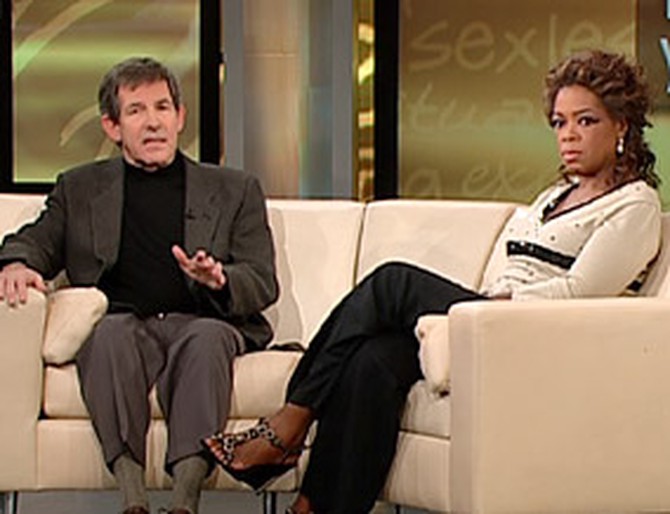
Gary says that most people enter into marriage with many different intentions. He says a spiritual partnership is a dynamic that can be entered into with just one intention...spiritual growth. "It doesn't mean you go out and you say, 'I'm going to create a spiritual partnership,'" he says. "It means that your intention is to become aware and responsible for yourself."
According to Gary, spiritual partnerships have four main requirements—commitment, compassion, courage and conscious communication.
Gary hopes that couples everywhere will stop looking outward and begin looking inward...like Oprah did back in 1989 after reading his book Seat of the Soul.
"[That book] has been the single greatest force in changing the way I saw the world and saw myself," Oprah says. "For the first time in my life, I understood how my intentions were creating my reality. ... When I learned that principle of the intention, it changed the way I operated my entire life."
According to Gary, spiritual partnerships have four main requirements—commitment, compassion, courage and conscious communication.
Gary hopes that couples everywhere will stop looking outward and begin looking inward...like Oprah did back in 1989 after reading his book Seat of the Soul.
"[That book] has been the single greatest force in changing the way I saw the world and saw myself," Oprah says. "For the first time in my life, I understood how my intentions were creating my reality. ... When I learned that principle of the intention, it changed the way I operated my entire life."
Published 01/24/2007

